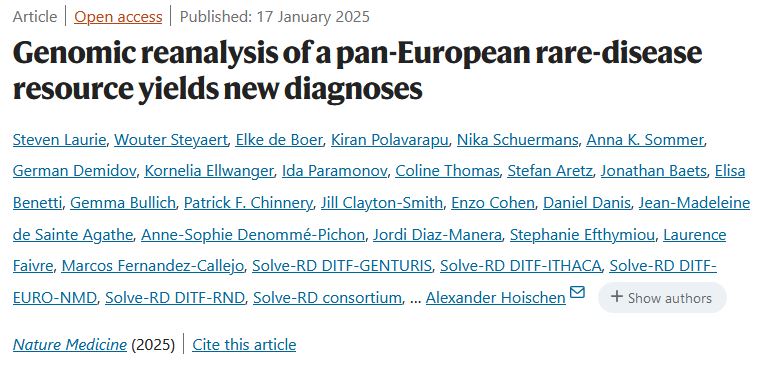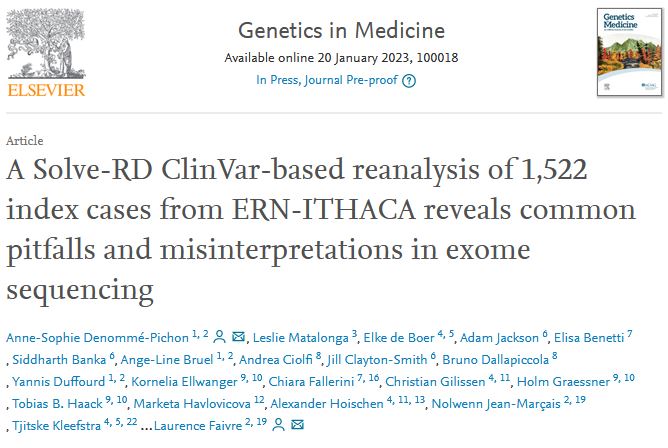New Solve-RD Publication in Nature Medicine
New publication in Nature Medicine out now: Over 500 patients receive diagnosis through genetic reanalysis by Solve-RD!
It’s a great pleasure to share that our Solve-RD “flagship paper” was just published in Nature Medicine and is available online since Friday, 17th January 2025 at 11am CET.
Genetic diagnosis of rare diseases requires accurate identification and interpretation of genomic variants. Clinical and molecular scientists from 37 expert centers across Europe created the Solve-Rare Diseases Consortium (Solve-RD) resource, encompassing clinical, pedigree and genomic rare-disease data (94.5% exomes, 5.5% genomes), and performed systematic reanalysis for 6,447 individuals (3,592 male, 2,855 female) with previously undiagnosed rare diseases from 6,004 families. We established a collaborative, two-level expert review infrastructure that allowed a genetic diagnosis in 506 (8.4%) families. Of 552 disease-causing variants identified, 464 (84.1%) were single-nucleotide variants or short insertions/deletions. These variants were either located in recently published novel disease genes (n = 67), recently reclassified in ClinVar (n = 187) or reclassified by consensus expert decision within Solve-RD (n = 210). Bespoke bioinformatics analyses identified the remaining 15.9% of causative variants (n = 88). Ad hoc expert review, parallel to the systematic reanalysis, diagnosed 249 (4.1%) additional families for an overall diagnostic yield of 12.6%. The infrastructure and collaborative networks set up by Solve-RD can serve as a blueprint for future further scalable international efforts. The resource is open to the global rare-disease community, allowing phenotype, variant and gene queries, as well as genome-wide discoveries.
Steven Laurie, Wouter Steyaert, Elke de Boer, Kiran Polavarapu, Nika Schuermans, Anna K. Sommer, […], Katja Lohmann, Richarda M. de Voer, Ana Töpf, Lisenka E.L.M. Vissers, Sergi Beltran, Alexander Hoischen. Genomic Reanalysis of a Pan-European Rare Disease Resource Yields New Diagnoses. doi: 10.1038/s41591-024-03420-w.
This research was conducted by the Solve-RD consortium and within four different ERNs, namely DITF-GENTURIS, DITF-ITHACA, DITF-EURO-NMD, and DITF-RND.


